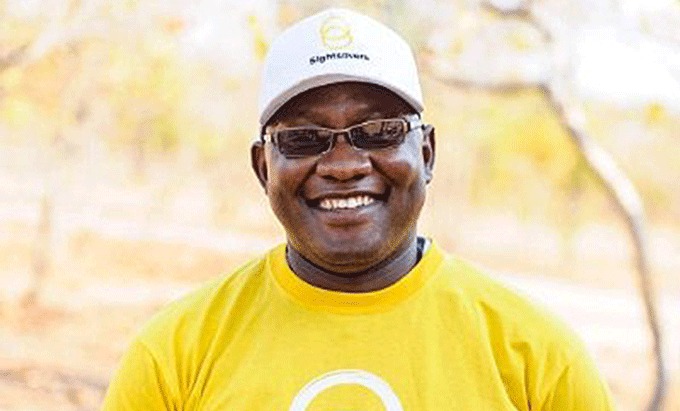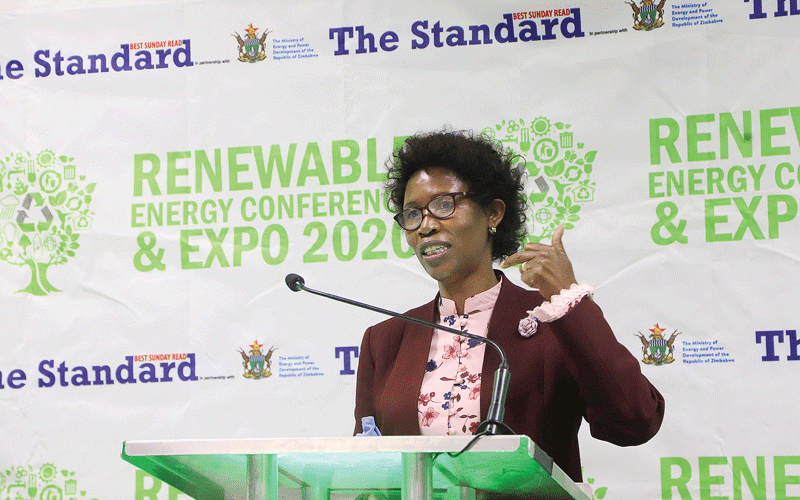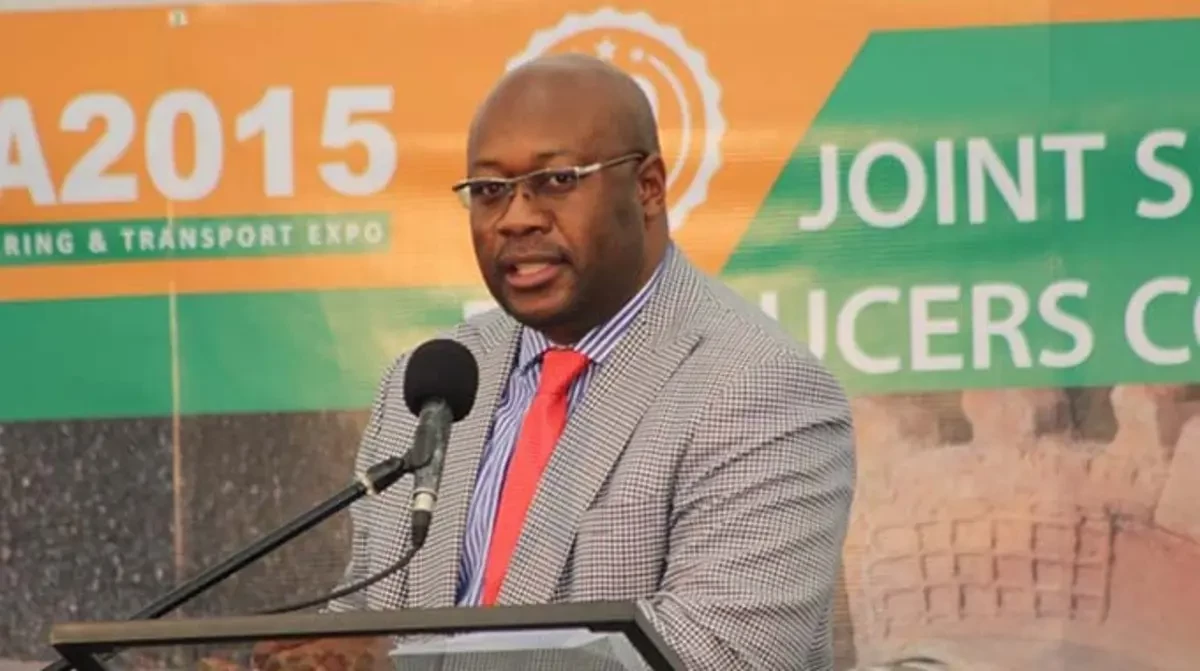
By Silence Mugadzaweta THE Global Disability Summit will be held in February to address the needs of people with disabilities (PWDs) to ensure that their issues are integrated into the country’s policies and laws being crafted. Zimbabwe has ratified the United Nations (UN) Convention on the Rights of Persons with Disabilities (UNCRPD), but it is among 13 countries that have not yet ratified the African Disability Protocol (ADP), which, if signed will guarantee policy changes that are inclusive of PWDs and protect their rights. NewsDay (ND) digital & online editor Silence Mugadzaweta last week spoke to Sightsavers country director Peter Bare (PB)….
ND: Why is ADP important for Africa? What benefits can be derived from ratifying the protocol? PB: The summit is an opportunity for governments like that of Zimbabwe to address inequality and romote disability rights. Many PWDs face denial of their rights daily. The COVID-19 pandemic has worsened this inequality, particularly for women and girls with disabilities. In ensuring disability inclusive development in the countries we work, Sightsavers advocacy focuses on challenging the structural causes of injustice. To achieve this, it is critical to have an enabling policy environment that ensures the rights of PWDs are protected and that national laws conform to best practices and international standards enshrined in international agreements and treaties. ADP is a protocol contained in the African Charter on Human and Peoples’ Rights, the human rights Charter of the African Union. Thus, ADP is that AU’s legal framework for ensuring the rights of persons with disabilities are upheld.
It was adopted by the AU Commission on Human and Peoples’ Rights (ACHPR) in Addis Ababa, Ethiopia, on January 29, 2018.
ADP responds to African contextual issues in ways that only an African-specific protocol does. It addresses issues of customs, traditional beliefs, harmful practices, the role of the family, caregivers and community, as well as issues of ritual killings, among others.
ADP has an African relevance and thrust. Thus, the protocol seeks to address African-specific issues. It also deals with community-based rehabilitation and minorities within the disability community in Africa like people with albinism. Generally, the language of the protocol is more disability friendly and use the rights-based approach and is more detailed and illustrative to bring out the peculiarities of the African context.
ADP is intended to complement the African Charter on Human and Peoples’ Rights. Upon entry into force, it will address political, economic and social issues affecting PWDs such as harmful practices, discrimination, social exclusion, increased rates of poverty, risk of violence and abuse, particularly for persons with albinism, women, girls and other PWDs. The protocol requires 15 ratifications to come into effect. Member States of the AU need to ratify and domesticate it to ensure the rights guaranteed in the protocol become part of the countries’ domestic laws.
ND: Does the National Disability Policy (NDP), which was launched in 2021, have a binding effect on protecting PWDs? PB: In 2021, the Zimbabwean government was hailed, in what was referred to as historic development in the disability movement, when President Emmerson Mnangagwa launched NDP aimed at addressing the rights and welfare of PWDs. Like they say, a journey of a thousand miles begins with one step, the NDP launch was a great stride towards addressing the plight of PWDs.
Now that we have policy on disability, Zimbabwe must come up with a legal framework that supports the implementation of NDP. Already on the cards is the Disability Bill which, if passed into law, will provide the much-needed legal framework for NDP.
- Chamisa under fire over US$120K donation
- Mavhunga puts DeMbare into Chibuku quarterfinals
- Pension funds bet on Cabora Bassa oilfields
- Councils defy govt fire tender directive
Keep Reading
ND: Is ratifying ADP enough? Are there any measures that the country should take to protect the rights of PWDs? PB: ADP shall enter into force 30 days after deposit of the 15th instrument of ratification by a member State. Therefore, the protocol requires 15 ratifications before it comes into force.
Article 31 of the ADP requires member States to go through ratification in accordance with their respective constitutional provisions and deposit the instruments of ratification with the chairperson of the ACHPR.
Procedure for ratifications may vary from country to country. Beyond ratification, Zimbabwe needs to domesticate the protocol and ensure that PWDs are aware of their rights.
ND: Why are there only two countries that ratified the ADP? What are the implications for not ratifying? PB: The protocol is a relatively new instrument as it was adopted in 2018. The ratification process requires several steps and depending on the national processes, including the workings of Parliament, it can take a year or several years to ratify it. In the case of AU protocols, we may compare it with the protocol on older persons which was adopted by the AU two years earlier, and only has two ratifications.
ADP at the moment has only two ratifications by Mali and Cameroon. However, several countries are at various stages of ratification.
Countries like Kenya, Senegal and Malawi are either done with the national processes or are almost through with it and are left with depositing the instruments of ratification at the AU. Thus, in the coming months, we can expect more ratifications.
ND: Are PWDs represented well in Parliament? PB: Zimbabwe ratified the UN Convention on the Rights of Persons with Disabilities in 2013 and in the same year parliamentarians adopted a new Constitution, which through section 83, requires the State to take appropriate measures to ensure that PWDs realise their full mental and physical potential.
The Disabled Persons Act of 1992 has been overtaken by events, it is no longer in harmony with the new Constitution and what the UNCRPD calls State parties to do. The Parliament of Zimbabwe has to play a role to ensure new legislation is put in place to cater for the rights of PWDs. Parliament should enact laws and policies that ensure availability of disagregated data in ministries — which data can be aggregated to provide information that facilitates positive responses to the needs of PWDs. As of now, there is inadequate data on PWDs all the way from village to national level.
ND: As an organisation, what milestones have you recorded and at what point would you say this is the ideal situation for PWDs? PB: Sightsavers is proud to work with disability campaigners in Mali and Cameroon towards ratification of disability protocols in those countries and is working in Zimbabwe and other countries towards achieving the same goal.
Sightsavers Zimbabwe has been working with organisations that advocate for the righs of PWDs in attaining Sustainable Development Goals by engaging the government to consider their views in the implementation of national development strategies.
Sightsavers, along with National Association of Societies for the Care of the Handicapped, is counting down to the Global Disability Summit (February 16-17) and is appealing to governments to take advantage of the opportunity by attending and making strong input. It is also calling on them to use the summit to move forward with the ratification of ADP.
- Follow Silence on Twitter @Mugadza40










